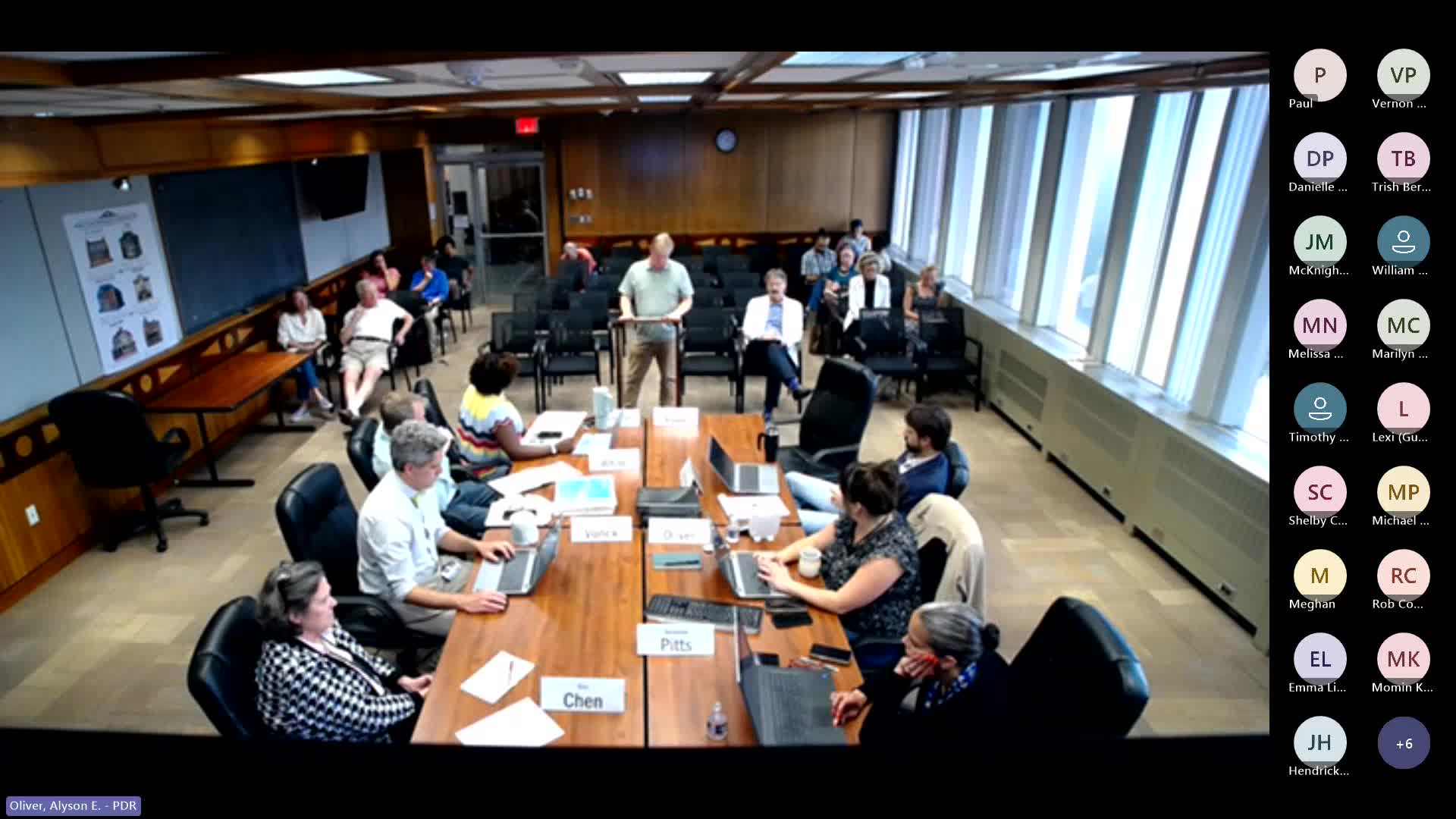Richmond residents question new designations for cultural heritage districts and property rights
July 11, 2025 | Richmond City (Independent City), Virginia
This article was created by AI summarizing key points discussed. AI makes mistakes, so for full details and context, please refer to the video of the full meeting. Please report any errors so we can fix them. Report an error »

During a recent Richmond City Planning Commission meeting, significant concerns were raised regarding the proposed creation of new design overlay and cultural heritage districts. Community members expressed apprehension about the potential for these districts to impose restrictions on property owners without their consent.
One speaker emphasized the importance of transparency and fairness in the establishment of these districts, questioning who would control them and the authority behind their creation. They highlighted that, according to the city’s own community engagement findings, many residents are not in favor of adding new or expanding existing historic districts. This sentiment suggests a desire for options and incentives rather than mandates that could infringe on property rights.
The speaker drew a comparison to Virginia law, which requires a 51% agreement from homeowners to form a homeowners association that enforces design rules. They argued that if private associations must adhere to this standard, the city should follow suit to ensure fairness in property ownership rights. The call for a balanced approach included a suggestion that any new preservation initiatives should be paired with incentives to encourage participation rather than impose restrictions.
Additionally, the speaker pointed to successful models from other cities, such as Norfolk, which has implemented historic overlay zoning that allows property owners to voluntarily list their buildings on the local historic register. This model not only respects individual choice but also provides benefits like expanded uses and flexibility for property owners.
As the meeting progressed, it became clear that the community is seeking a preservation strategy that respects their rights while promoting the historical integrity of Richmond. The discussions highlighted the need for a collaborative approach that prioritizes resident input and consent in any future planning efforts.
One speaker emphasized the importance of transparency and fairness in the establishment of these districts, questioning who would control them and the authority behind their creation. They highlighted that, according to the city’s own community engagement findings, many residents are not in favor of adding new or expanding existing historic districts. This sentiment suggests a desire for options and incentives rather than mandates that could infringe on property rights.
The speaker drew a comparison to Virginia law, which requires a 51% agreement from homeowners to form a homeowners association that enforces design rules. They argued that if private associations must adhere to this standard, the city should follow suit to ensure fairness in property ownership rights. The call for a balanced approach included a suggestion that any new preservation initiatives should be paired with incentives to encourage participation rather than impose restrictions.
Additionally, the speaker pointed to successful models from other cities, such as Norfolk, which has implemented historic overlay zoning that allows property owners to voluntarily list their buildings on the local historic register. This model not only respects individual choice but also provides benefits like expanded uses and flexibility for property owners.
As the meeting progressed, it became clear that the community is seeking a preservation strategy that respects their rights while promoting the historical integrity of Richmond. The discussions highlighted the need for a collaborative approach that prioritizes resident input and consent in any future planning efforts.
View full meeting
This article is based on a recent meeting—watch the full video and explore the complete transcript for deeper insights into the discussion.
View full meeting
